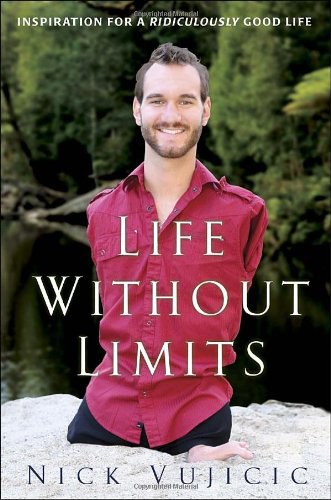
Literary Remains
书刊介绍
内容简介
Lu Xun (1881–1936), arguably twentieth-century China’s greatest writer, is commonly cast in the mold of a radical iconoclast who vehemently rejected traditional culture. The contradictions and ambivalence so central to his writings, however, are often overlooked. Challenging conventional depictions, Eileen J. Cheng’s innovative readings capture Lu Xun’s disenchantment with modernity and his transformative engagements with traditional literary conventions in his “modern” experimental works. Lurking behind the ambiguity at the heart of his writings are larger questions on the effects of cultural exchange, accommodation, and transformation that Lu Xun grappled with as a writer: How can a culture estranged from its vanishing traditions come to terms with its past? How can a culture, severed from its roots and alienated from the foreign conventions it appropriates, conceptualize its own present and future?
Literary Remains shows how Lu Xun’s own literary encounter with the modern involved a sustained engagement with the past. His creative writings—which imitate, adapt, and parody traditional literary conventions—represent and mirror the trauma of cultural disintegration, in content and in form. His contradictory, uncertain, and at times bizarrely incoherent narratives refuse to conform to conventional modes of meaning making or teleological notions of history, opening up imaginative possibilities for comprehending the past and present without necessarily reifying them.
Behind Lu Xun’s “refusal to mourn,” that is, his insistence on keeping the past and the dead alive in writing, lies an ethical claim: to recover the redemptive meaning of loss. Like a solitary wanderer keeping vigil at the site of destruction, he sifts through the debris, composing epitaphs to mark both the presence and absence of that which has gone before and will soon come to pass. For in the rubble of what remains, he recovered precious gems of illumination through which to assess, critique, and transform the moment of the present. Literary Remains shows how Lu Xun’s literary enterprise is driven by a “radical hope”—that, in spite of the destruction he witnessed and the limits of representation, his writings, like the texts that inspired his own, might somehow capture glimmers of the past and the present, and illuminate a future yet to unfold.
Literary Remains will appeal to a wide audience of students and scholars interested in Lu Xun, modern China, cultural studies, and world literature.
作品目录
AbbreviationsPrologue: The Owl
Introduction: History, or What Remains in the Present
Part One Re-membering the Past
1 The Limits of Subjectivity: Death, Trauma, and the Refusal to Mourn
2 The Illegitimate Preface
3 (Un)Faithful Biographers
Part Two New Culture through the Prism of Tradition
4 Death by Applause: Eulogizing
5 The Abandoned Lover
6 The Journey Home
Part Three Dialogic Encounters
7 Mocking the Sages
8 Disenchanted Fables
Epilogue: Remembrance, Forgetting, and Radical Hope
Acknowledgments
Notes
Glossary
Works Cited
Index
· · · · · ·
作者简介
Eileen J. Cheng is associate professor of Chinese at Pomona College.
相关推荐
-

Lou Petrucci《Heart of the Hide》
AdvancePraiseFor"HeartoftheHide""HeartoftheHide"isastoryforallagesYoucanthelpbut...
-

2011一级注册建筑师考试建筑方案设计(作图)应试指南(第四版)
2011一级注册建筑师考试建筑方案设计(作图)应试指南(第四版) 本书特色 《一级注册建筑师考试建筑方案设计(作图)应试指南(第4版)》:2011执业资格考试丛...
-

清代水利与区域社会
清代水利与区域社会 内容简介 中国是一个历史悠久的农业大国,农业在整个社会经济中具有举足轻重的地位。而水利的兴衰,对农业的发展又有着重要的影响,不仅历代政府会重...
-

是谁出的题这么难,到处都是正确答案
邱天,麦肯锡7年咨询顾问,互联网行业5年运营管理,沃顿商学院工商管理学硕士,北京大学经济学硕士。作为生活在北京的职场妈妈,她通过公众号“清醒贪心记”分享职场方法...
-

大泽传奇
大泽是一片美丽的,广阔的水域,栖息着各种各样的蛙族,有泽蛙族,有黑斑蛙族,有虎纹蛙族,有牛蛙族,有弹琴蛙族,有树蛙族……这是一个青蛙的国度,一个快活的,繁盛的大...
-

草中鸽
✦游荡在虚无中的人类,不过就是草地上盲目打转的鸽子。✦文明崩溃、阶级动荡、种族隔阂,命运的蒙太奇折射战后一代的精神迷惘。✧诺贝尔文学奖得主君特·格拉斯、纳丁·戈...
-

抱朴子内篇
作品目录前言畅玄卷一论仙卷二对俗卷三金丹卷四至理卷五微旨卷六塞难卷七释滞卷八道意卷九明本卷十仙药卷十一辨问卷十二极言卷十
-

对比Excel,轻松学习Python数据分析
作品目录入门篇第1章数据分析基础...................................................................
-

《Social Networks and Organizations》书籍《Social Networks and Organizations》
`Theauthorsshouldbecongratulatedfornotonlyofferinganexcellenttourdeforceofcuttin...
-

编者《民法总则条文理解与司法适用》
中国审判理论研究会民商事专业委员会编著的《民法总则条文理解与司法适用》由中国审判理论研究会民商事专业委员会编著,对《民法
-

埋线提升与抗衰老操作手册
埋线提升与抗衰老操作手册 本书特色 本书引自韩国,由韩国微整形先驱申汶锡院长编写,国内微整形领域知名专家张陈文、孙玮骏、曹思佳等人结合自己的临床经验编译而成。本...
-

Elizabeth Stewart|Maire Jaanus|Richard Feldstein《Lacan in the German-speaking World》
ThisbookoffersaselectionofthebestworkonLacanthathasbeenpublishedoverthepasttenye...
-

辽宁省文物考古研究所《朝阳营州路出土瓷器》
《朝阳营州路出土瓷器》收录的是辽宁省朝阳营州路地区考古发掘地点出土的瓷器,其中包括了各类瓷器和瓷片约300余件,为研究我国东
-

テスカトリポカ
佐藤 究1977年福岡県生まれ。2004年に佐藤憲胤名義で書いた『サージウスの死神』が第47回群像新人文学賞優秀作となりデビュー。’16年『QJKJQ』で第62...
-

变中谋稳
该书是“中央研究院”院士梁其姿的新力作,该书围绕了明清至近代大变局中的两个着力点——启蒙教育与施善济贫,讲述了家族、地方社会与国家谋求稳定的重要关系。本书分为两...
-

审问欧洲
【内容简介】一个政客,希特勒,加上一个民族,德国人,如何能够彻头彻尾地改变一整个大陆的面貌,这一点至今成谜,但是,德国的力量其实比人们普遍认知中的要有限。拿犹太...
-

钢笔建筑内环境技法与表现
钢笔建筑内环境技法与表现 内容简介 会画画的人未必能画好空间感较强的建筑或室内设计效果图,不会画素描的人通过本书的学习却能学好钢笔设计预想图。此书是作者通过多年...
-

David C Hightower《The Hanging Man Dreams》
ExactlywhoisthisHangingMan?Howdidheendupinsuchasituation?Andhowisitthathechances...
-

知行合一王阳明(1472—1529)
在蛮荒的龙场,王阳明悟出了“圣人之道,吾性自足”,即人人皆有良知。而在血腥的沙场和险恶的朝堂,让龙场悟道实际发挥作用的,是“知行合一”,即遵循内心的良知,便能达...
-

Life Without Limits
精彩摘录Lifemaynotbegoingwellforyounow,butaslongasyouarehere,aslongasyoupressforward...





